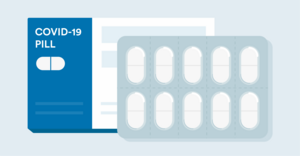Lab tests near me
in Bloomington, MN
Own a clinic? Add your location.
Help patients book appointments with you on Solv. It's free!
10 instant-book locations

AFC Urgent Care, Hopkins
AFC Urgent Care
Today
View more
Compcare Urgent Care & Occupational Medicine, Lakeville
Compcare Urgent Care & Occupational Medicine
Today
View more
Compcare Urgent Care & Occupational Medicine, Eagan
Compcare Urgent Care & Occupational Medicine

Compcare Urgent Care & Occupational Medicine, Cottage Grove
Compcare Urgent Care & Occupational Medicine

Accord Health, Maple Grove
Accord Health

Self-pay pricing
Clear self-pay prices
No more surprise bills. Solv is committed to making getting healthcare as easy as buying groceries at the store, including knowing the price of care upfront.

Quest Diagnostics
Quest Diagnostics

Labcorp
Labcorp
Self-pay pricing
Clear self-pay prices
No more surprise bills. Solv is committed to making getting healthcare as easy as buying groceries at the store, including knowing the price of care upfront.

Self-pay pricing
Clear self-pay prices
No more surprise bills. Solv is committed to making getting healthcare as easy as buying groceries at the store, including knowing the price of care upfront.

Labcorp
Labcorp
Self-pay pricing
Clear self-pay prices
No more surprise bills. Solv is committed to making getting healthcare as easy as buying groceries at the store, including knowing the price of care upfront.

MinuteClinic Inside CVS Pharmacy, Lyndale Ave, Bloomington
MinuteClinic Inside CVS Pharmacy
Fastest Labs, Bloomington
Fastest Labs
Environ Laboratories
Environ Laboratories
M Health Fairview Urgent Care, Oxboro
M Health Fairview Urgent Care

Walmart Pharmacy
Walmart Pharmacy
Allina Health Urgent Care, Centennial Lakes, Edina
Allina Health Urgent Care
Edina Urgent Care
Edina Urgent Care
Physical & Occupational Medicine
Physical & Occupational Medicine
CVS MinuteClinic, CVS MinuteClinic
CVS MinuteClinic

MinuteClinic Inside CVS Pharmacy, York Ave, Edina
MinuteClinic Inside CVS Pharmacy
Own a clinic? Add your location.
Help patients book appointments with you on Solv. It's free!
Recent Lab Tests Reviews (20)
Bloomington Lab Tests
Lab tests take samples of your blood, urine, saliva, and other bodily secretions, which are then analyzed in a lab to help doctors diagnose and treat certain illnesses. Lab tests can be used to diagnose an illness, detect changes in an existing condition, and monitor how your body responds to a therapy, among other things. They can also be used to monitor the progression of a disease or a set of diseases.
If your doctor is unable to make a definitive diagnosis of your disease, or if you are having a variety of symptoms that could indicate a variety of disorders, he or she may request a lab test. To see how you're responding to a drug or to check if you're at risk for certain diseases, lab tests may be performed.If your doctor is unable to make a definitive diagnosis of your disease, or if you are having a variety of symptoms that could indicate a variety of disorders, he or she may request a lab test. To see how you're responding to a drug or to check if you're at risk for certain diseases, lab tests may be performed.
Some lab tests require no preparation at all, while others may require you to fast for eight to twelve hours before the test in order to avoid erroneous results from certain meals and beverages. Your healthcare provider may advise you to cease smoking, exercising, and taking certain medications and nutritional supplements for many hours or days before your blood test.
Before your lab test, ask your doctor for precise instructions to follow to minimize erroneous results and multiple trips to the lab for additional testing. Before your lab test, ask your doctor for precise instructions to follow to minimize erroneous results and multiple trips to the lab for additional testing.
A lab worker may use a needle to draw blood from your arm or prick your finger to collect a small sample of blood during a blood test. During a urine test, your physician will ask you to go to the restroom and urinate in a sterile cup, then set your sample on a shelf where a lab technician can pick it up and process it. The personnel at the lab testing facility will demonstrate how to do each type of test.
A lab worker may draw blood from your arm with a needle or prick your finger to acquire a small sample of blood during a blood test. During a urine test, your physician will tell you to go to the bathroom and urinate in a sterile cup, then set your sample on a shelf to be picked up and processed by a lab worker. The personnel at the lab testing facility will demonstrate how to do each test.
Lab Tests FAQs
Where should I get a lab test in Bloomington?
Doctors commonly order lab tests and can refer you to one or more reputable lab test centers in your area. Lab tests can be performed in Bloomington urgent care centers, hospitals, and walk-in clinics that specialize in lab testing. Your healthcare practitioner can supply you with a list of lab test providers, or you can use Solv to see what's available in your area.
How much do lab tests cost?
The cost of a lab test is determined by several factors, including the type of test, your location, whether you have insurance, and the fees charged by the lab test provider. Many health insurance providers will cover the cost of lab testing in part or in full. Those who do not have insurance, on the other hand, will almost certainly face higher costs. Contact lab test providers directly to confirm the cost of your lab test based on your health insurance benefits. The cost of a lab test is determined by several factors, including the type of test, your location, whether you have insurance, and the fees charged by the lab test provider. Many health insurance providers will cover the cost of lab testing in part or in full.
Does insurance cover lab testing?
Many health insurance plans will cover lab tests that your doctor determines are medically necessary for your illness. The easiest way to find out if your health plan covers lab testing is to contact your insurance carrier directly or ask the lab test provider to check your insurance benefits and verify price.Many health insurance plans will cover lab tests that your doctor determines are medically necessary for your illness. The easiest way to find out if your health plan covers lab testing is to contact your insurance carrier directly or ask the lab test provider to check your insurance benefits and verify price.
How long does it take to get lab test results in Bloomington?
Lab test results may be available in minutes, hours, days, or weeks, depending on the type of test performed, lab staff productivity, and your doctor's availability. Some lab test providers let you see your results as soon as they're available online, while others need you to wait for your doctor's answer. Your doctor or the lab provider can give you a more accurate estimate of when your lab test results will arrive.
What is a routine lab test?
A basic lab test may evaluate your red and white blood cell counts to discover if you have anemia, a blood infection, or blood cancer. It may also test fat levels in your blood to determine your risk of heart disease and examine the health of your organs, such as your heart, kidneys, and liver. Your healthcare provider will be able to explain what a typical lab test entails.
What STDs can be detected by a blood test?
A blood test can identify STDs such as syphilis, HIV, hepatitis C, and herpes. Your doctor may order that blood be collected and submitted to a lab, or that you undergo STD testing at a lab test provider. STD test results might arrive in minutes, days, or weeks, depending on the lab test company you work with.
Do I need to see a doctor before getting a lab test?
Before performing specific tests, some lab test providers require a doctor's referral, while others do not. The benefit of seeing a doctor before getting a lab test is that you can assess whether or not you need one based on your symptoms and a physical examination. A doctor can also help you decide which tests are necessary.
How can I book a lab test on Solv?
On our home page, please specify the type of lab service you desire, as well as your location and state. Solv will give you with a list of lab test providers in your area, as well as their contact information, so you can make an appointment right immediately.
How long does getting a lab test take?
The majority of lab tests are completed in a matter of minutes, but certain providers may have extensive wait times that require you to spend up to an hour in the lab. To limit the amount of time you spend waiting for your lab test, schedule an appointment with Solv ahead of time.
Should I try at-home lab testing?
Privacy, convenience, and accuracy are all advantages of at-home lab testing. Some at-home lab testing services, however, may not be covered by your health insurance plan. Some healthcare practitioners may seek additional lab tests to corroborate their diagnosis of specific health concerns. Consult your doctor to see if at-home lab testing is appropriate for you, given your unique health situation.Privacy, convenience, and accuracy are all advantages of at-home lab testing. Some at-home lab testing services, however, may not be covered by your health insurance plan. Some healthcare practitioners may seek additional lab tests to corroborate their diagnosis of specific health concerns. Consult your doctor to see if at-home lab testing is appropriate for you, given your unique health situation.

Updated on Jan 25, 2026
Solv has strict sourcing guidelines and relies on peer-reviewed studies, academic research institutions, and medical associations. We avoid using tertiary references.
Related Searches
Flu Test in Bloomington, MN
RSV Test in Bloomington, MN
Strep Test in Bloomington, MN
Urgent Care in Bloomington, MN
Basic Metabolic Panel in Bloomington, MN
COVID-19 Testing in Bloomington, MN
Drug Test in Bloomington, MN
Ear Wax Removal in Bloomington, MN
Retail Clinic in Bloomington, MN
Diagnostic Test in Bloomington, MN
Mono Test in Bloomington, MN
Urinalysis in Bloomington, MN
DNA Test in Bloomington, MN
Diabetes Test in Bloomington, MN
Dermatologists in Bloomington, MN
DOT Exam in Bloomington, MN
COVID-19 Pill in Bloomington, MN
Glucose Test in Bloomington, MN
Sports Physicals in Bloomington, MN
TB Test in Bloomington, MN
STD Testing in Bloomington, MN
Cholesterol Test in Bloomington, MN
CMP Test in Bloomington, MN
Pediatric Urgent Care in Bloomington, MN
Thyroid Test in Bloomington, MN
Vitamin D Test in Bloomington, MN
H Pylori Test in Bloomington, MN
Pregnancy Test in Bloomington, MN
Allergy Testing in Bloomington, MN
Blood Test in Bloomington, MN
Hepatitis test in Bloomington, MN
A1C Test in Bloomington, MN
Pulmonary Function Test in Bloomington, MN
Aetna Urgent Care
Blue Cross Blue Shield Urgent Care
Cigna Urgent Care
COVID-19
Flu
United Health Urgent Care
» All services in Bloomington, MNFind lab tests
Nearby cities
Popular Brands in Bloomington
Everyday Healthcare, Simplified
Expert advice to help you live your best life







